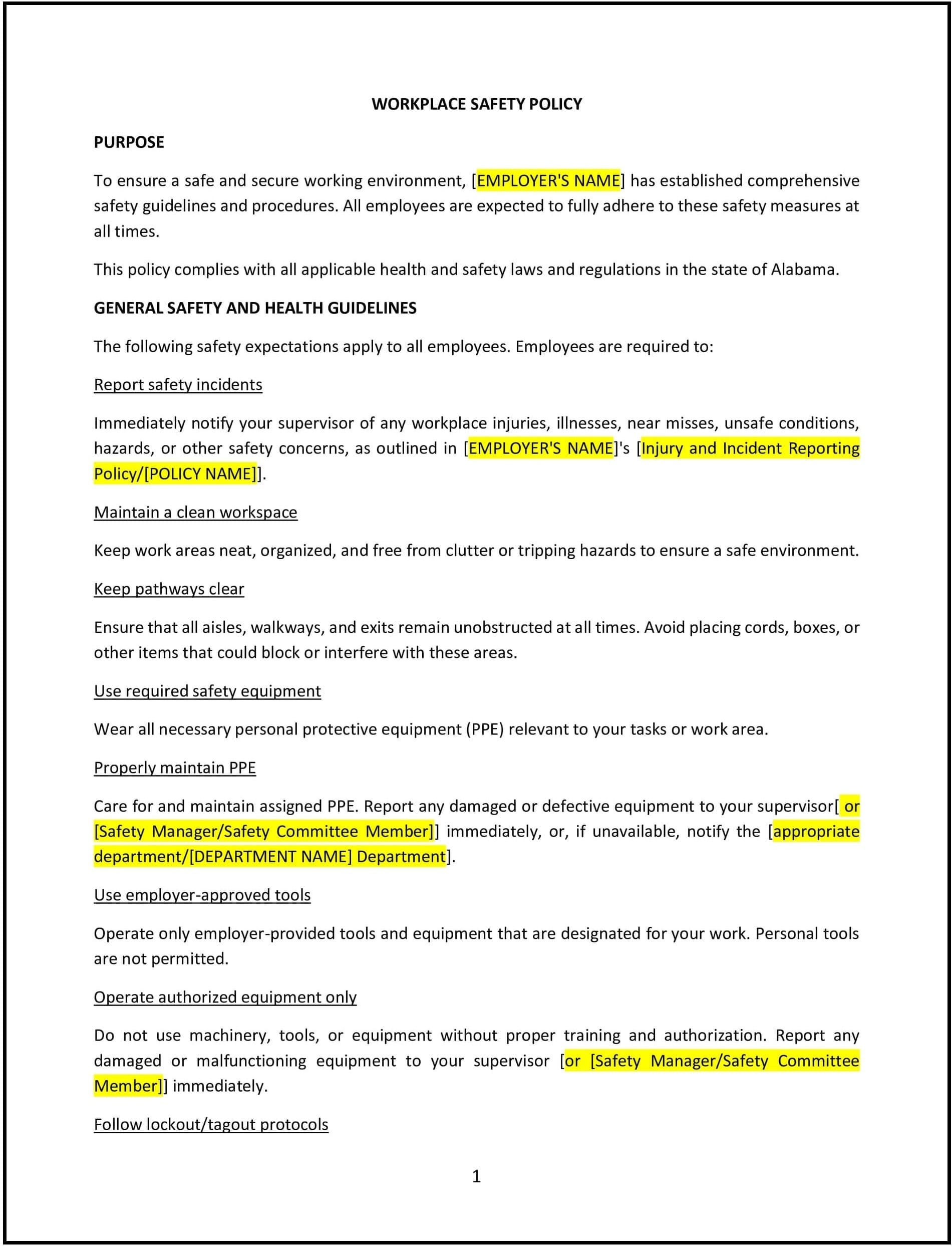Got contracts to review? While you're here for policies, let Cobrief make contract review effortless—start your free review now.

Customize this template for free
Workplace safety policy (Alabama)
A workplace safety policy outlines the procedures, responsibilities, and guidelines for maintaining a safe work environment. For SMBs in Alabama, this policy ensures compliance with Occupational Safety and Health Administration (OSHA) standards and protects employees, customers, and visitors from potential hazards.
This policy provides clear expectations for safety practices, reporting incidents, and managing risks, creating a proactive approach to workplace health and safety.
How to use this workplace safety policy (Alabama)
- Define safety standards: Clearly outline the company’s expectations for workplace safety, including adherence to Alabama and federal regulations.
- Identify potential hazards: List common risks relevant to your industry and workplace environment, such as equipment use, chemical handling, or ergonomic concerns.
- Establish reporting procedures: Provide instructions for reporting safety incidents, hazards, or near misses, including designated contacts and documentation requirements.
- Outline training requirements: Specify the type and frequency of safety training required for employees, including new hires and ongoing education.
- Include emergency protocols: Detail steps for responding to emergencies such as fires, medical incidents, or natural disasters, ensuring all employees are prepared.
Benefits of using a workplace safety policy (Alabama)
A workplace safety policy helps SMBs create a secure environment while meeting legal obligations. Here’s how it helps:
- Protects employees: Reduces the risk of injuries and illnesses by promoting safe practices and addressing hazards promptly.
- Supports compliance: Aligns with Alabama and OSHA regulations, minimizing legal risks and penalties.
- Enhances productivity: Reduces downtime and disruptions caused by accidents or unsafe conditions.
- Builds trust: Demonstrates the company’s commitment to employee well-being and safety.
- Encourages accountability: Establishes clear roles and responsibilities for maintaining safety standards.
Tips for implementing a workplace safety policy (Alabama)
- Conduct regular risk assessments: Evaluate the workplace periodically to identify and mitigate potential hazards.
- Provide comprehensive training: Offer targeted safety training for specific roles and general education for all employees.
- Maintain safety equipment: Ensure all safety tools and equipment, such as fire extinguishers or PPE, are accessible and in good condition.
- Foster open communication: Encourage employees to report hazards or concerns without fear of retaliation.
- Review and update: Regularly update the policy to reflect changes in workplace operations, regulations, or industry standards.